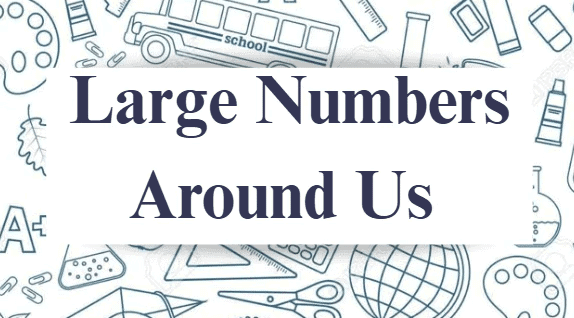Class 7 Maths Chapter 1 HOTS Question Answers - Large Numbers Around Us

Q1: Write the number 45,67,890 in both Indian and American systems. If you add 1 lakh to this number, what is the new number in the Indian system? Explain how adding 1 lakh changes the digits.
Sol: Indian: 45,67,890 (forty-five lakh sixty-seven thousand eight hundred ninety).
American: 4,567,890 (four million five hundred sixty-seven thousand eight hundred ninety).
Add 1 lakh (1,00,000): 45,67,890 + 1,00,000 = 46,67,890.
New number (Indian): forty-six lakh sixty-seven thousand eight hundred ninety.
Q2: The population of Chintamani in 2011 was 75,000. If each person uses 3 notebooks per year, how many notebooks are needed for the entire town in one year? If the population grows to 1,06,000 in 2024, how many more notebooks will be needed in 2024 compared to 2011?
Sol: In 2011: Population = 75,000.
Notebooks needed = 75,000 x 3 = 2,25,000.
In 2024: Population = 1,06,000.
Notebooks needed = 1,06,000 x 3 = 3,18,000.
Additional notebooks = 3,18,000 - 2,25,000 = 93,000.
Q3: A student wrote: “The number 1,00,000,000 is 10 crores and also 1 million.” Spot and correct the mistake using number conversion logic.
Sol:
1 crore = 10 million
So, 10 crore = 100 million
Therefore, 1,00,000,000 = 100 million, not 1 million.Conclusion:
The student made a conversion error.
Correct statement: 1,00,00,000 = 10 million = 1 crore
1,00,00,00,000 = 100 million = 10 crore
Q4: Using the digits 1, 2, 3, 4, 5 exactly once, form a 5-digit number that is the largest possible. Now, swap any two digits to make the smallest possible number. Explain why your choices work.
Sol: Largest number: Arrange digits in descending order: 54,321.
Smallest number after swapping: Swap the largest digit (5) with the smallest digit in the lowest place (1) → 14,325. Why it works:
Why it works:
The original smallest number using all digits is 12345, but the question asks us to make the smallest number by swapping any two digits from the largest number (54321). Swapping the first digit (5) with the last digit (1) places the smallest digit (1) at the highest place value, making the number as small as possible from one swap. So, 14325 is the smallest number possible with just one swap from 54321.
Q5: A calculator has buttons +100 and +1,000. How many button clicks are needed to make the number 56,700? Write the expression and explain how you ensured the minimum number of clicks.
Sol: Express 56,700: (56 x 1,000) + (700 ÷ 100 x 100) = (56 x 1,000) + (7 x 100).
Clicks: 56 (for +1,000) + 7 (for +100) = 63 clicks.
Expression: (56 x 1,000) + (7 x 100) = 56,700.
Why this is the minimum:
Using as many +1,000 clicks as possible covers the largest part of the number, and only +100 is used for the remaining part. This keeps the total number of clicks as low as possible.
|
41 videos|251 docs|8 tests
|






















